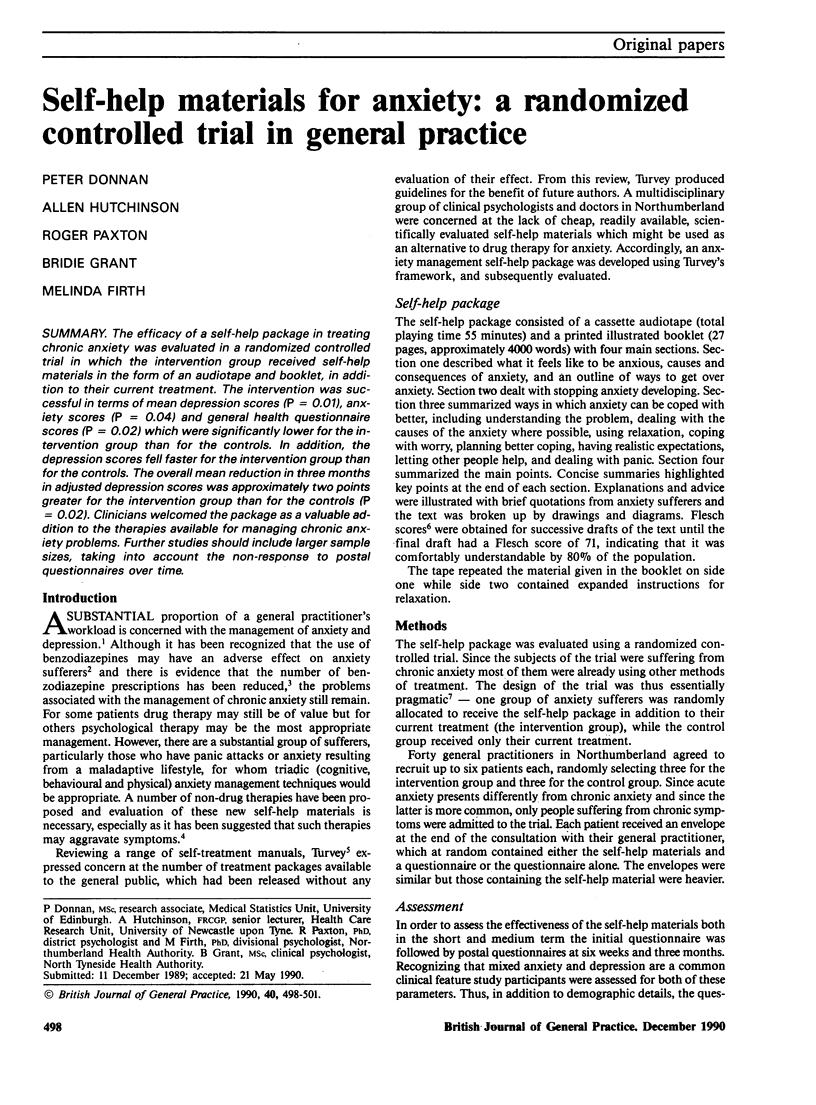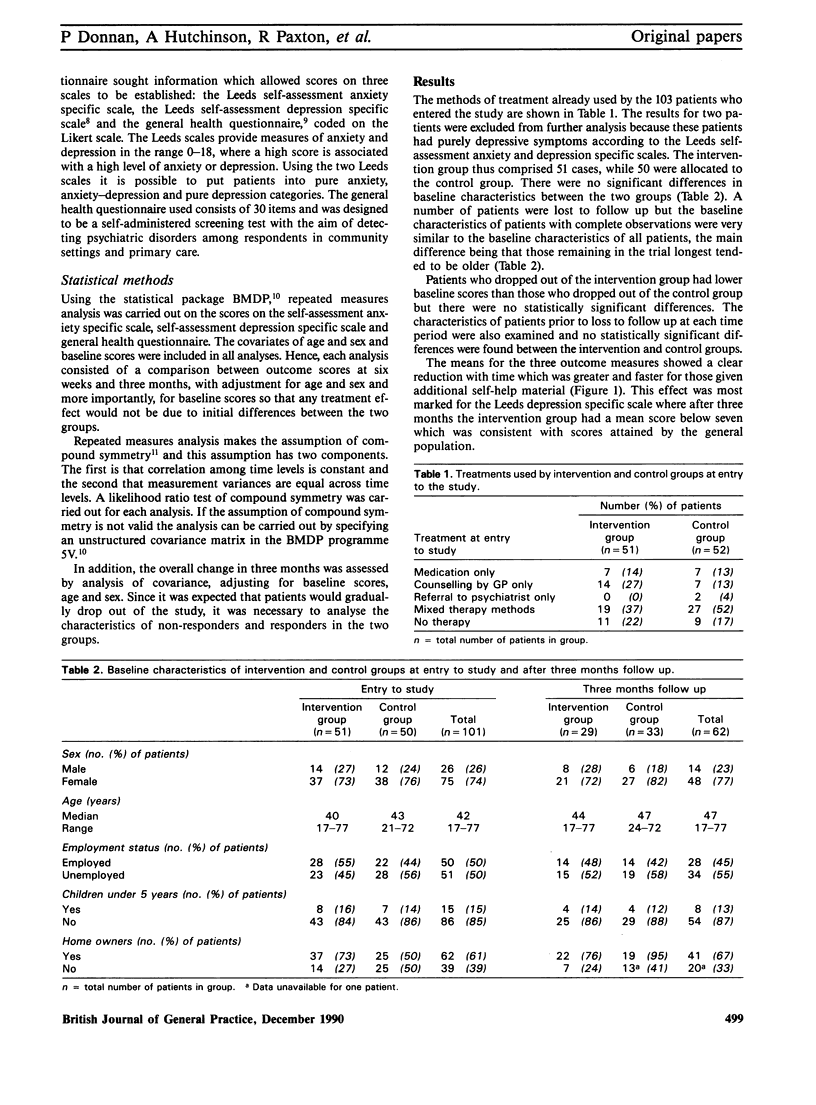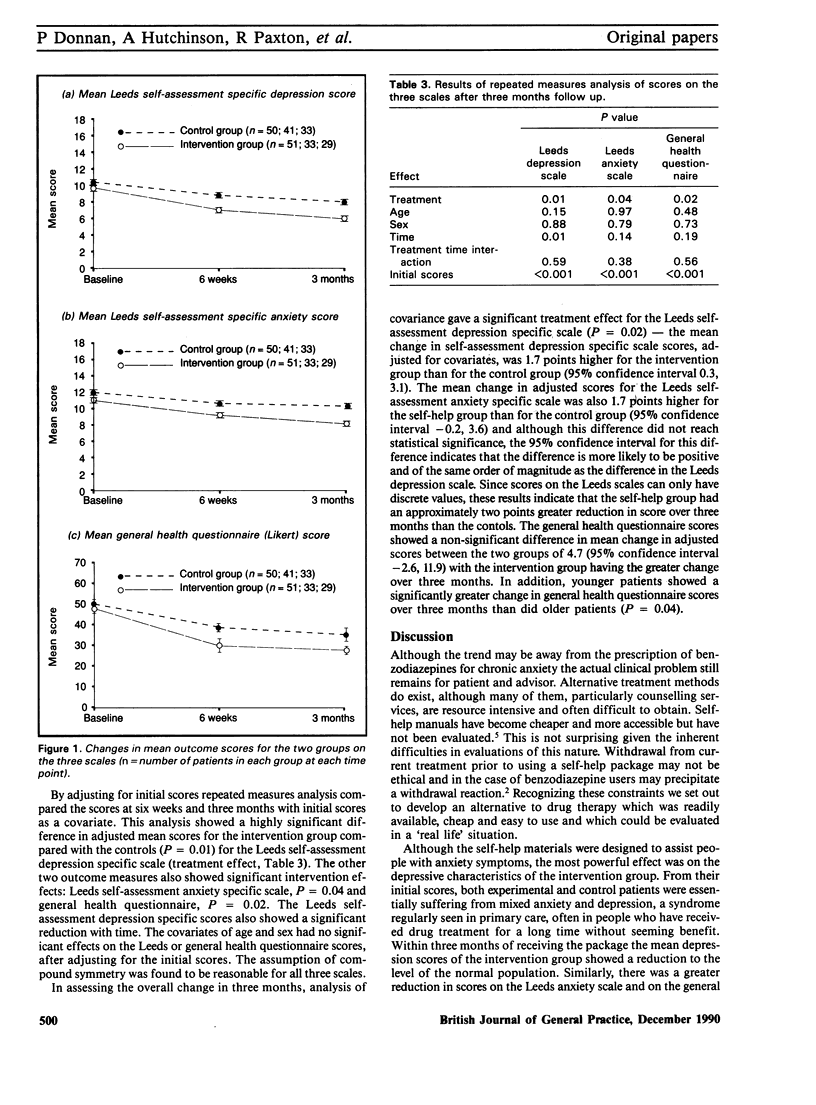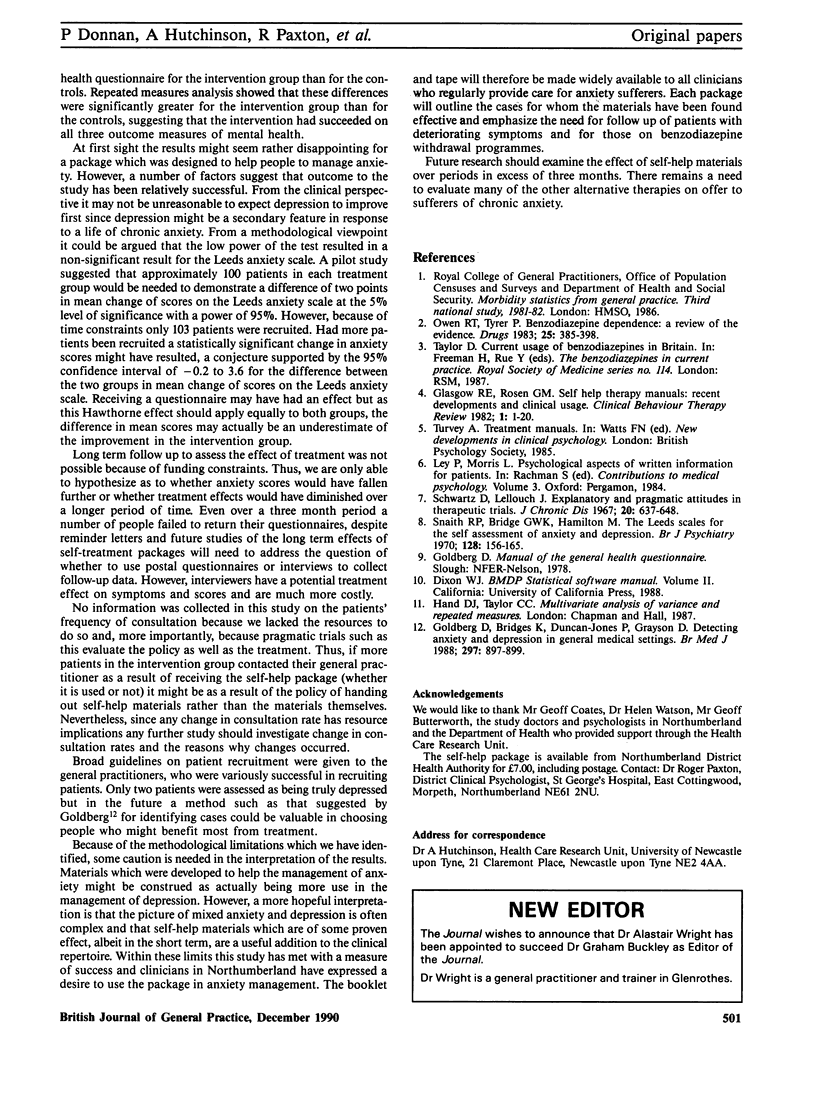Abstract
The efficacy of a self-help package in treating chronic anxiety was evaluated in a randomized controlled trial in which the intervention group received self-help materials in the form of an audiotape and booklet, in addition to their current treatment. The intervention was successful in terms of mean depression scores (P = 0.01), anxiety scores (P = 0.04) and general health questionnaire scores (P = 0.02) which were significantly lower for the intervention group than for the controls. In addition, the depression scores fell faster for the intervention group than for the controls. The overall mean reduction in three months in adjusted depression scores was approximately two points greater for the intervention group than for the controls (P = 0.02). Clinicians welcomed the package as a valuable addition to the therapies available for managing chronic anxiety problems. Further studies should include larger sample sizes, taking into account the non-response to postal questionnaires over time.
Full text
PDF



Selected References
These references are in PubMed. This may not be the complete list of references from this article.
- Goldberg D., Bridges K., Duncan-Jones P., Grayson D. Detecting anxiety and depression in general medical settings. BMJ. 1988 Oct 8;297(6653):897–899. doi: 10.1136/bmj.297.6653.897. [DOI] [PMC free article] [PubMed] [Google Scholar]
- Owen R. T., Tyrer P. Benzodiazepine dependence. A review of the evidence. Drugs. 1983 Apr;25(4):385–398. doi: 10.2165/00003495-198325040-00003. [DOI] [PubMed] [Google Scholar]
- Schwartz D., Lellouch J. Explanatory and pragmatic attitudes in therapeutical trials. J Chronic Dis. 1967 Aug;20(8):637–648. doi: 10.1016/0021-9681(67)90041-0. [DOI] [PubMed] [Google Scholar]
- Snaith R. P., Bridge G. W., Hamilton M. The Leeds scales for the self-assessment of anxiety and depression. Br J Psychiatry. 1976 Feb;128:156–165. doi: 10.1192/bjp.128.2.156. [DOI] [PubMed] [Google Scholar]


